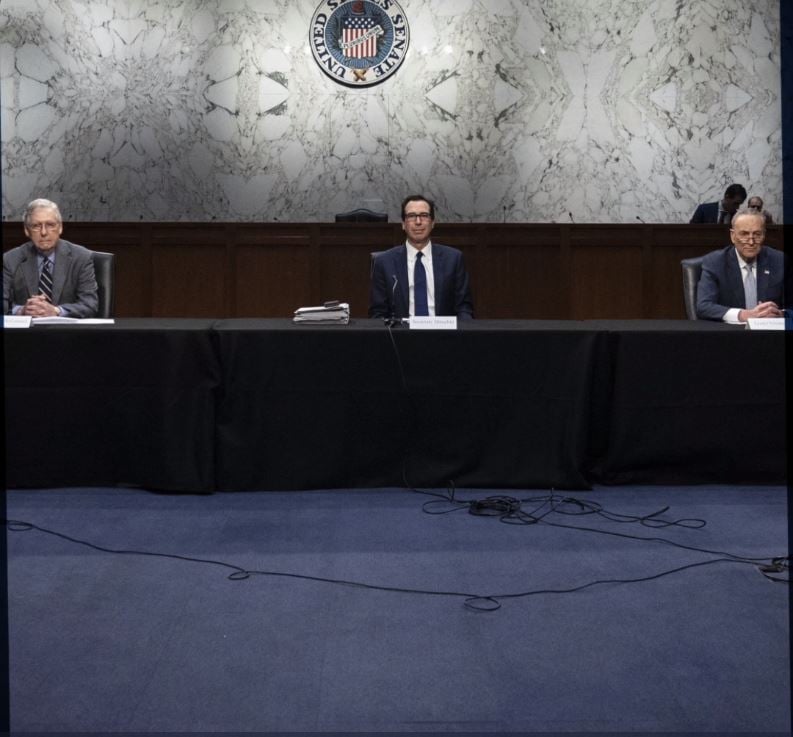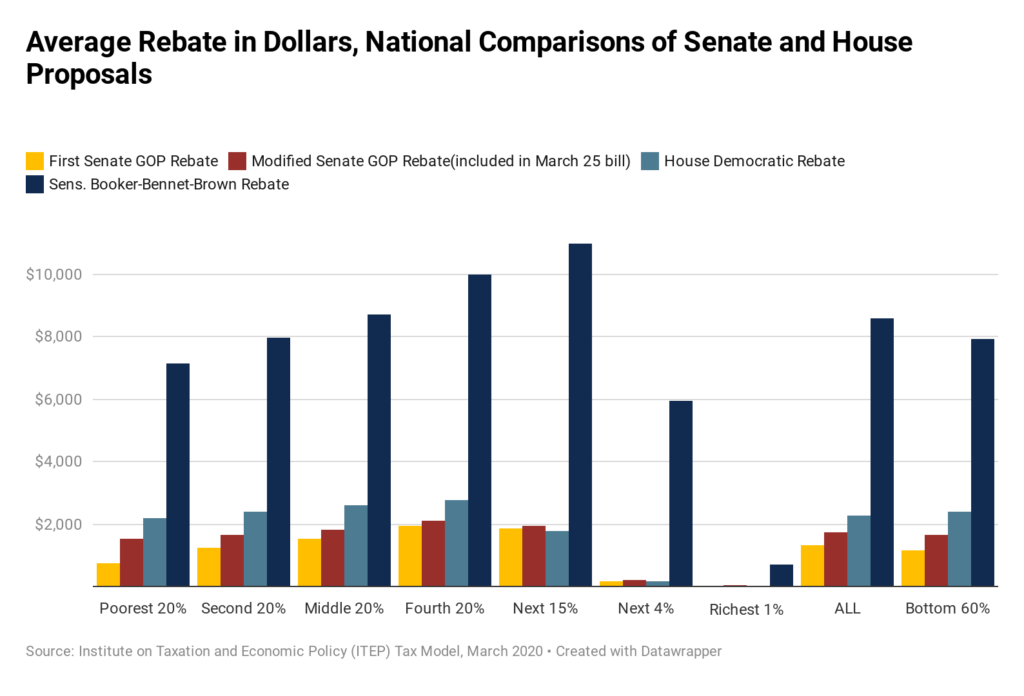Following is a statement by Amy Hanauer, executive director of the Institute on Taxation and Economic Policy, regarding the $2 trillion relief package expected to be enacted today. ITEP’s distributional analysis of how the rebate checks will affect individuals and families is here and here.
“Crisis and unprecedented are overused words at a time like this, but a public health and economic calamity of the scale we are facing deserves a rapid response. Like others, we want to see families and communities get the resources they so urgently need to manage a crisis of this scale, and, to that end, this bill is an adequate start.
“There are many crucial elements: essential state and local fiscal relief, important improvements and extensions to unemployment compensation, and needed healthcare investments. We are particularly pleased that strong advocacy helped make the individual payments in this bill more universal and that previously excluded poor people and families are included in the final version.
“We are well aware that longstanding inequities in our economy left families vulnerable before this crisis, and they will struggle to get ahead after this country pulls through this if we don’t concurrently have serious conversations and advance policies to repair an economic system that has been rigged to benefit the wealthy and powerful.
“The heavily lobbied for corporate provisions in the stimulus package are emblematic of some policymakers’ tendency to put the whims of the wealthy and powerful first. No one wants industries to fail. But we do want to hold them accountable. Before this crisis, corporations (including those seeking bailouts like the airline industry) were the biggest beneficiaries of the Trump-GOP tax cuts. They and their political allies promised corporate tax cuts would lead to investment in people, but instead they went toward stock buyback sprees, further enriching executives and shareholders. Corporations whittled their newly low tax rate even further. Their tax avoidance left this nation with fewer resources to meet critical needs.
“Now, it’s on taxpayers to save industries much like we did during the last recession. This time, it is crucial that we enforce real oversight on the staggering $500 billion in corporate aid in this plan.
“Our elected officials must understand that we’re not finished. In the long-term, we need to take legislative and regulatory steps at the state and federal levels to unrig our economy. Right now, we need to keep families afloat and make sure they have access to health care, can stay in their homes and can put food on the table. The next round of assistance-and there must be a next round-should be much more focused on people, families, local government and communities.”





